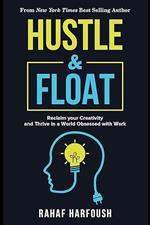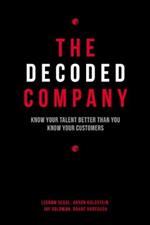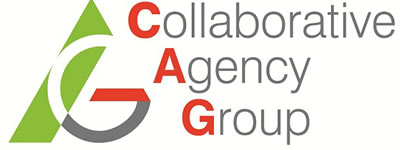
08 Jul Rahaf Harfoush

Speaker: RAHAF HARFOUSH
Strategist, Digital Anthropologist, & Best-Selling Author
Speech Topics Include:
- A New Innovation Frontier
- Transform Volatility into Strategic Advantage
- Finding and Keeping The Best Talent
- Reclaiming Focus Has Become a Survival Imperative.
- Psychological Safety & Cohesion of Hybrid Teams
Rahaf Harfoush is a Strategist, Digital Anthropologist, and New York Times Best-Selling Author who focuses on the intersections between emerging technology, innovation, and digital culture.
She is the Executive Director of the Red Thread Institute of Digital Culture and teaches “Innovation & Emerging Business Models” at Sciences Politique’s school of Management and Innovation in Paris. She is currently working on her fourth book.
Rahaf is a member of France’s National Digital Council. In 2021 she joined The Oxford Internet Institute as a Visiting Policy Fellow.
Her third book, entitled “Hustle & Float: Reclaim Your Creativity and Thrive in a World Obsessed with Work,” was released in 2019. She has been featured by Bloomberg, The CBC, CTV, and Forbes for her work on workplace culture. It has been translated into Chinese and French.
Formerly, Rahaf was the Associate Director of the Technology Pioneer Program at the World Economic Forum in Geneva where she helped identify disruptive-startups that were improving the state of the world.
Rahaf is the co-author of “The Decoded Company: Know Your Talent Better Than You Know your Customers” It was published in early 2014 and was listed on both the New York Times and USA Today best seller lists. It won a 2015 Gold Axiom Award for Best Business Technology Book. The Decoded Company explores how big data is providing an unprecedented opportunity for organizations to dramatically improve their decision making, increase their performance and, most importantly, intentionally create happy and vibrant work cultures.
Her first book, “Yes We Did: An Insider’s Look at How Social Media Built the Obama Brand,”chronicled her experiences as a member of Barack Obama’s digital media team during the 2008 Presidential elections and explored how social networking revolutionized political campaign strategy.
In 2019, the prestigious “Les Napoleons” named Rahaf as one of the most innovative women in France. She was listed as one of the top future thinkers to shape the world by the Hay Literary Festival in 2017. Rahaf was named as a Young Global Changer by the G20 Global Think Tank Summit. Rahaf has also been recognized by the World Economic Forum as a Young Global Shaper, and by the Women’s Forum for the Economy and Society as a Rising Talent for her thought leadership in the fields of digital culture and technology. In 2014, Rahaf was also named as a “Canadian Arab to Watch,” by the Canadian Arab Institute. She is a member of the German Marshall Network of Transatlantic Leaders.
Rahaf’s writing has been featured in HBR, Wired, The Globe and Mail, Fast Company, Monocle, The Financial Times, Techonomy, The Next Web and many more. She is a frequent commentator on France24 and the CBC. She has been speaking about Digital Culture and Technology since 2006.
A New Innovation Frontier
The advent of generative AI has ushered in a transformative era for innovation, fundamentally altering how we conceive, create, and collaborate.
As these emerging technologies become increasingly sophisticated, businesses and creators are faced with both unprecedented opportunities and ethical dilemmas. The ability of AI to generate content, solve complex problems, and enhance human creativity has the potential to revolutionize industries. However, this also raises questions about originality, authenticity, and the future role of human creativity in the digital age.
Rahaf navigates these complexities, shedding light on the delicate balance between leveraging AI for innovation and maintaining the integrity of human-centric creation. Pushing past the hype to delve into the business models, consumer behaviors, and strategic insights that are underpinning this technological revolution, she highlights successful case studies and emerging trends to provide actionable insights for organizations looking to harness the power of AI while navigating its potential pitfalls.
Transform Volatility into Strategic Advantage
Today’s leaders face the challenge of not just surviving, but thriving amidst disruption, a difficult feat when digital culture and technology are constantly reshaping leadership best-practices.
To be anti-fragile in this context means to possess the ability to not only absorb shocks but to also use these disruptions as fuel for growth and innovation. Leaders must cultivate a deep understanding of digital culture, trends in technology, and the impact of these forces on their organizations and industries. This requires a shift towards a leadership style that is dynamic, responsive, and adept at leveraging the insights and opportunities afforded by the digital age.
In this keynote, Rahaf delves into the concept of anti-fragility from a digital culture and technology perspective, illustrating how leaders can navigate change, foster innovation, and build an organization that is capable of quickly acting on the opportunities presented by technological disruption.
Finding and Keeping The Best Talent
In the post-resilient landscape where adaptability and agility define organizational success, attracting and retaining top talent has become a nuanced challenge. This keynote focuses on the strategies for keeping employees motivated, engaged, and continuously learning in an era where the pace of technological change is relentless. Organizations must not only integrate new tools and technologies but also cultivate an environment that supports upskilling, lifelong learning, and the psychological well-being of their workforce.
As digital workspaces become the norm, leaders are tasked with creating a culture that values innovation, adaptability, and the human element of technology. The focus shifts towards developing strategies that not only attract skilled professionals but also inspire them to grow, innovate, and remain engaged with the organization’s mission.
Rahaf outlines actionable steps for organizations to enhance their talent management practices in the digital age. Through practical examples and case studies, she illustrates how integrating technology with a deep understanding of digital culture can lead to a more satisfied, productive, and innovative workforce.
Reclaiming Focus Has Become a Survival Imperative.
There is a strange paradox of digital connectivity: while designed to enhance productivity and social engagement, it often leads to increased stress, information burnout, and a decline in mental well-being. Workers find themselves navigating a deluge of digital information, struggling to maintain focus amidst constant interruptions, and grappling with the implications of an overly connected lifestyle. The resultant digital fatigue and team misunderstandings highlight the need for a critical reevaluation of our digital habits and the cultivation of practices that support digital well-being.
This keynote addresses the impact of digital labor intensification and the psychological effects of doom scrolling and dopamine-driven interactions on our ability to focus, engage in deep work, and maintain mental health. Rahaf explores strategies for individuals and organizations to mitigate these challenges, promoting a healthier, more balanced approach to digital engagement.
Rahaf offers actionable insights for organizations to support their employees’ digital well-being, including the implementation of policies that reduce digital overload, encourage digital detoxes, and foster environments conducive to focused work.
Psychological Safety & Cohesion of Hybrid Teams
As hybrid and remote work models become the new normal, the challenge of cultivating a robust organizational digital culture is more critical than ever. Today’s leaders are tasked with the challenge of making geographically dispersed teams feel connected and engaged while establishing digital norms that promote transparency, empathy and inclusivity. These challenges require a deliberate approach to digital culture, emphasizing the importance of policies and practices where employees feel seen and heart, despite the physical distance that separate them.
Rahaf provides strategies for embedding positive digital culture within organizations, highlighting the role of communication, technology, and leadership in shaping an effective hybrid and remote work environment. She discusses creating digital spaces that encourage collaboration, modeling digital-first behaviors by leaders, and establishing frameworks to ensure online interactions are psychologically safe and respectful.






